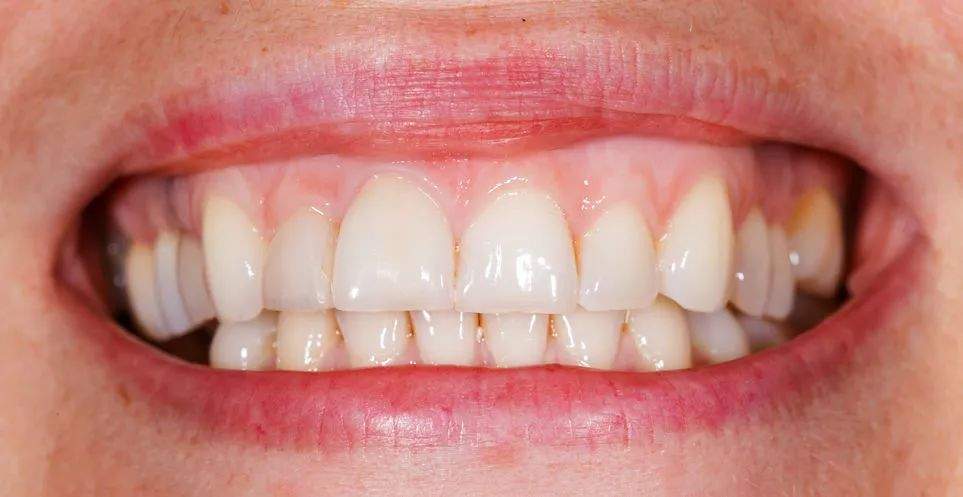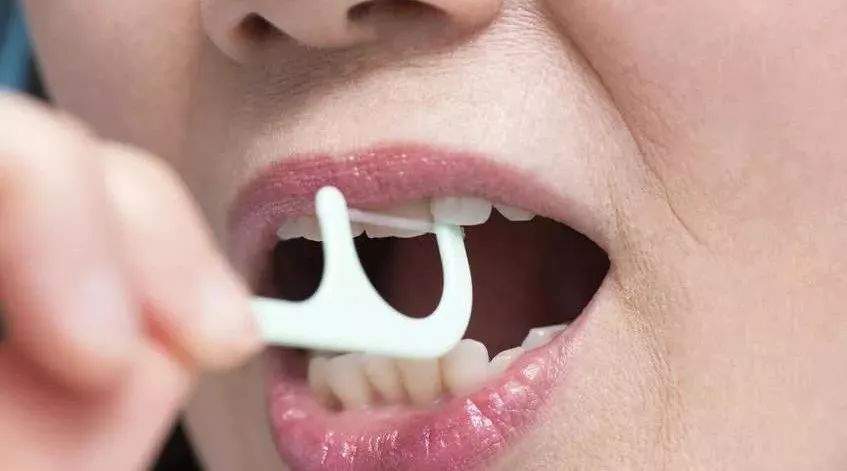Hello everyone, I am He Jianliang, the great white tooth king. I am very happy to meet you again! Today, I’d like to talk to you about those things that are still quite common in daily life.
Gingival bleeding is estimated to have been encountered by many people, such as:
A bite of an apple, in addition to the tooth marks… there are actually two red marks? !
Kiss, suck hard… why is there still a salty smell? !
What is more horrible is that when brushing your teeth, there is blood in the bubbles you spit out!
… …
Although as a dentist, Da Bai Ya Jun has encountered it himself, he does not seem to worry very much most of the time. Gingival bleeding is only a local inflammation of gums. Proper brushing of teeth (both teeth and gums) and flossing can achieve good results.
Some time ago, Bai Bai saw a hot message on Weibo:

One of them is:

Thinking carefully is extremely frightening!
You know, gingival bleeding is a typical manifestation of periodontal disease. Now the discovery is that [the pathogen of periodontal disease] (Porphyromonas gingivalis) can cause inflammation and degeneration of neurons in mice, which is very close to the manifestation of human [Alzheimer’s disease], or [Alzheimer’s disease].
Although the relevant evidence of periodontal disease and human Alzheimer’s disease is not so certain, it is enough to give us a lot of enlightenment-periodontal disease may be related to more and more systemic diseases, besides Alzheimer’s disease, diabetes, cardiovascular and cerebrovascular diseases…
Why does gum bleed?
What was the gum like? This is a healthy gum:

Healthy gums are actually pink in color, which is very tough when viewed carefully. If you blow dry the water, you can sometimes see some granular bulges on the gums, as if they were a piece of armor to protect your teeth.
However, what will gums become if they become inflamed?
We will find that gums are no longer [pink], [tough] feeling, Not only does the color appear bright red or dark red, but it is more swollen in shape, like a bloated balloon, which feels like bleeding when pricked-in fact, it is very likely to bleed when touched lightly by a small probe. Such patients are often troubled by the situation mentioned at the beginning of the article.
But is it what’s reason that this blood comes out?
-
Dental calculus resides between teeth and gums for a long time, and chronic inflammation leads to gingival hemorrhage.
-
Bad prostheses, such as porcelain teeth that have fallen into disrepair, may cause bleeding if movable dentures compress gums.
-
The way and method of brushing teeth are too violent, and gum trauma leads to bleeding.
-
Systemic diseases, especially leukemia, hepatitis, etc.
-
… …
Therefore, when you find gum bleeding, most of the time you are actually reminding everyone to go to the dentist for examination.
At the same time, the dentist will also check the patient’s whole body condition, and a blood test can actually find many problems. If leukemia is found, then quickly transfer to the hematology department to see a doctor.
Tooth washing and periodontal scraping can really treat gingival bleeding!
Dentists recommend that it is very important to keep tooth washing once a year, which is not only to clean up dental calculi and restore the healthy state of gums, but also to conduct a comprehensive examination of the oral cavity, so as to find out the existing dental diseases in time or evaluate the recovery after previous treatment.
Do you want to know what it is to wash your teeth?
I wrote an article a long time ago (see us pulling out our teeth and washing them? ! ) in the demonstration of a loose tooth caused by too much dental calculus, after being pulled out by [tooth washing], interested can click on the link to watch!
In most cases, gingival hemorrhage is not a what [incurable disease] or [incurable disease]. As long as periodontal diseases are actively treated, especially for gingival hemorrhage caused by dental calculus accumulation, washing one tooth every six months to one year will have a good effect.
However, tooth washing is not omnipotent either. In fact, tooth washing can only remove dental calculi located above the gum cover, but cannot do anything about those [deep] dental calculi covered by gums. At this time, subgingival scaling is needed to clean up.
Brushing teeth, floss and mouthwash are essential.
After washing my teeth and scraping, I will bleed from time to time. What should I do?
Often this time is because of its own reasons, gingival inflammation has not been completely eliminated. The importance of oral hygiene cannot be ignored.
Brush your teeth, especially to your gums.
In addition to brushing teeth, flossing or dental impactor to clean plaque in the teeth is also a good way to control gingivitis.

For some stubborn gingivitis or periodontitis, mouthwash can also be used together. However, drug-based mouthwash is not recommended for long-term use.
